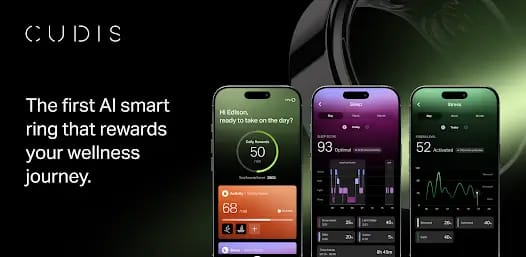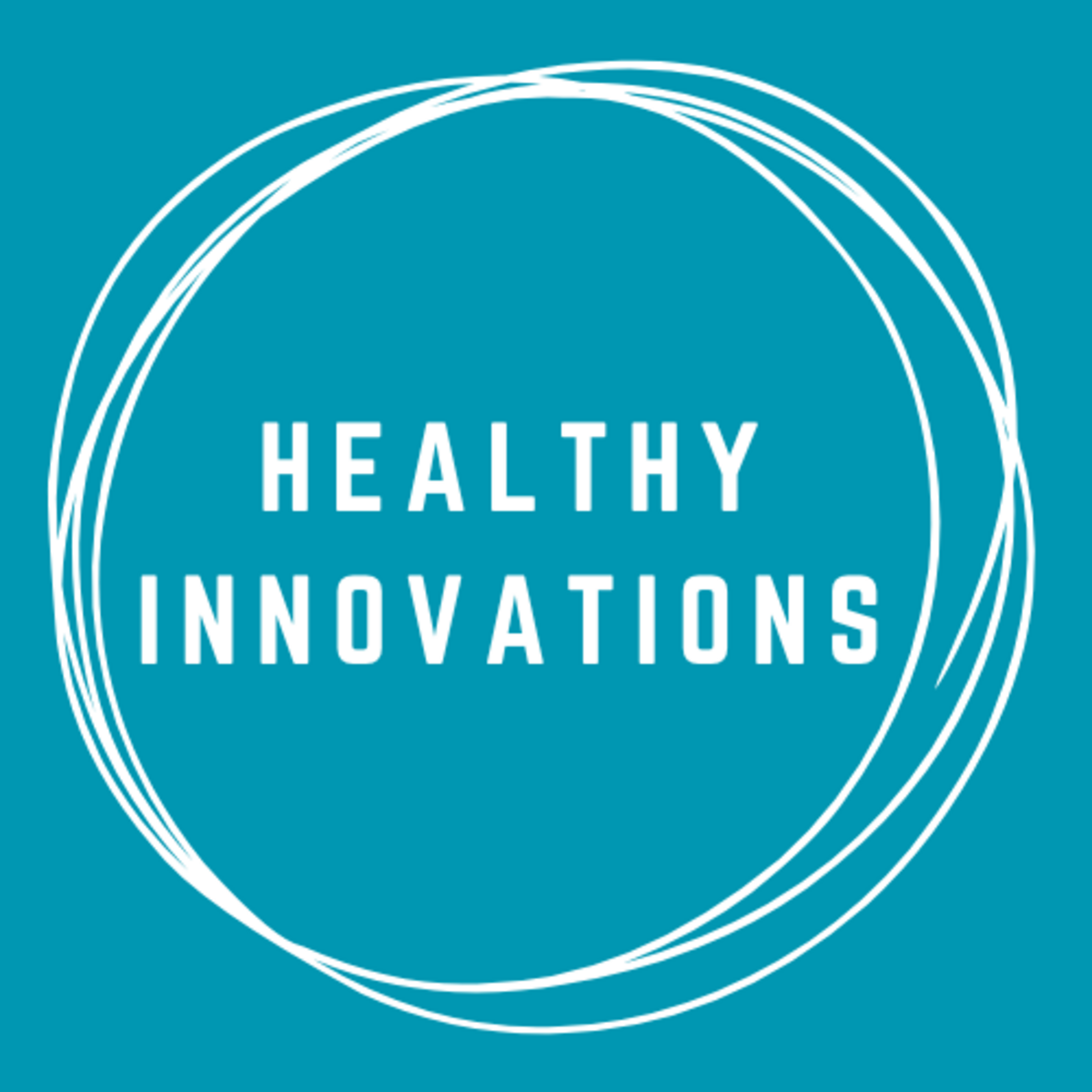Welcome back to Healthy Innovations! 👋
Healthy Innovations helps people understand cutting-edge healthcare advances to become better innovators within their healthcare teams.
Today, we're exploring how wearable devices have evolved from simple fitness trackers into sophisticated medical tools with the help of AI and what this means for the future of healthcare delivery and wellness tracking. As a lover of health wearables, I am excited to see what devices will look like in three, five, and ten years!
So, let's dive in!
Remember when fitness trackers just counted steps? Today's AI-powered wearables are sophisticated health monitors that detect heart arrhythmias, predict diabetic events, and even identify early signs of respiratory infections. The integration of artificial intelligence (AI) and generative AI (genAI) has transformed these devices from simple data collectors into proactive health companions.
From data collection to intelligent analysis
Early wearables (remember Jawbone?) excelled at gathering data - heart rate, sleep patterns, activity levels - but left users to interpret this information themselves. The integration of AI has fundamentally changed this dynamic, enabling devices to not only collect data but also understand it in context.
Modern AI algorithms detect patterns that might escape human observation, compare individual data against vast population datasets, and generate personalized insights that drive meaningful health improvements.
Breakthrough applications
Significant advances have emerged in cardiovascular monitoring, where AI-powered wearables now detect atrial fibrillation (AFib) with accuracy approaching clinical standards. Smartwatches equipped with electrocardiogram (ECG) technology have shown high sensitivity (70-96%) and specificity (70-94%) for detecting AFib, depending on the device and algorithm used.
In diabetes management, AI algorithms are revolutionizing care through continuous glucose monitoring (CGM) systems. These devices, like Dexcom’s G7 CGM system, can predict glucose level trends 60 minutes in advance with over 90% accuracy, allowing users to prevent hypoglycemic events before they occur. The integration of meal recognition algorithms and activity patterns enables more precise insulin dosing recommendations.
The Whoop 4.0 wearable has proven valuable for early infection detection. Its AI system monitors respiratory rate, heart rate variability, and other metrics to identify subtle changes that may signal infection. A compelling example is when professional golfer Nick Watney's Whoop device detected elevated respiratory rates overnight. Though he felt no symptoms, this prompted him to get tested for COVID-19. His positive test result enabled early isolation, preventing potential transmission during a PGA Tour event.

GearJunkie
While not as popular as other wearable types, smart glasses are also incorporating AI to increase health and wellness tracking abilities. Solos Smart Glasses, when paired with the Solos AirGo app, enable users to track and monitor health metrics, including posture, to build healthy habits and achieve targeted fitness goals.
Personalized health coaching
The introduction of genAI has added a new dimension to health wearables through natural language interactions and predictive insights. Users now engage with conversational interfaces that explain health data clearly, receive personalized coaching that adapts to their preferences, and get context-aware reminders that feel like helpful suggestions rather than automated alerts.
GenAI excels at creating custom reports and interactive dashboards that clarify complex health relationships. This technology transforms raw data into compelling visual stories that help users understand their health metrics and lifestyle choices.
Remote monitoring: Biofourmis, a digital therapeutics company, uses genAI to analyze real-time physiological data from wearables, detecting behavioral anomalies and health deviations as they occur. Especially useful in remote or resource-poor settings where face-to-face visits with a healthcare professional may prove challenging.
Wellness support: The Apollo Neuro wearable device creates personalized vibrations called “Apollo Vibes” to help users manage stress, improve sleep, and enhance focus. Developed by neuroscientists and physicians, it stimulates the vagus nerve and balances the autonomic nervous system, which controls stress and relaxation responses. This mimics touch therapy's calming effects to promote relaxation.

Apollo Neuro
Chronic disease management: Livongo uses AI and genAI to manage chronic diseases through a platform that offers personalized guidance, health tracking, and real-time feedback for diabetes and hypertension. It also provides targeted recommendations when vital signs deviate from normal ranges.
Fitness coaching: Sensoria’s Smart Socks can help improve running form by measuring cadence, impact forces and foot landing. The Sensoria Run App then provides users with AI coaching and dashboard tracking.
Gamification: The CUDIS Ring, an AI-powered smart ring, monitors heart rate, sleep, stress, and activity while providing personalized coaching. Through blockchain integration, it transforms health tracking into an engaging game with users earning points for exercising, tracking sleep, and completing wellness challenges.

Cudis
Key challenges
If smart wearables are really going to support people on their healthy journeys, four critical areas require attention as this technology evolves:
Data overload and integration issues: Managing vast health data and ensuring compatibility with electronic health records (EHRs) is a challenge.
Privacy and security concerns: AI-based data collection raises concerns about patient data security and compliance(e.g., GDPR).
Bias in AI models: AI training datasets can introduce bias, leading to inaccurate health predictions for certain demographics.
Physician trust and explainability: AI models must be transparent and interpretable for healthcare professionals to trust their outputs.
🔮 Looking ahead
The integration of AI into health wearables represents more than just technological advancement - it's a fundamental shift in how we monitor and manage personal health. As these devices become more sophisticated, they're increasingly bridging the gap between consumer wellness and clinical care.
For healthcare providers and digital health startups, the challenge now is to harness this potential while ensuring accuracy, privacy, and accessibility. The goal isn't just to collect more data but to transform that data into actionable insights that improve health outcomes.
The question isn't whether AI will transform health wearables but how quickly and comprehensively this transformation will occur. Are we ready for a future where our devices not only track our health but actively participate in maintaining it?
Innovation highlights
💉 One-shot cholesterol cure: Scientists have developed a revolutionary gene therapy that could replace daily cholesterol medications with a single treatment. Using a novel epigenetic editing technique, researchers silenced the PCSK9 gene - which regulates "bad" cholesterol - achieving a 70% reduction in cholesterol levels that lasted over a year.
☢️ Radiation GPS: UCSF scientists have revolutionized cancer radiation therapy by creating a "molecular GPS" for tumors. The two-step approach uses a drug to mark cancer cells with KRAS proteins, followed by radioactive antibodies that seek and destroy only the marked cells. In mouse trials, this precision targeting eliminated lung and bladder tumors without typical radiation side effects.
🫀 AI masters heart rhythm: A breakthrough trial shows AI-guided heart ablation dramatically improves treatment for persistent atrial fibrillation. The technology, which helps surgeons identify precise areas for treatment, achieved 88% success compared to 70% with standard approaches.
Cool tool
⚙️ Make.com transforms complex business workflows into simple automated tasks - no coding required. This ‘beginner-friendly’ platform connects thousands of apps like Google Docs and Notion through an intuitive drag-and-drop interface, letting you automate everything from email follow-ups to content creation. Add in genAI apps like Claude, and you've got the perfect setup for streamlining repetitive tasks and supercharging team productivity.

Make.com
Company to watch
🥽 Cassette Group is transforming medical training through immersive VR/AR solutions. This London-based studio creates virtual environments where healthcare professionals can practice complex procedures and patient interactions without risk. While traditional medical training often requires expensive equipment and patient volunteers, Cassette's customizable platforms make hands-on practice more accessible and cost-effective.

Cassette Group
Weird and wonderful
✋ Scratch that itch: Researchers have created an AI-powered wearable that gently vibrates to stop you from scratching in your sleep. The smart device, worn like a silicone bracelet, reduced nighttime scratching by 28% in people with atopic dermatitis (eczema) - all without waking them up. What makes this particularly clever is how it hijacks our unconscious behavior: the gentle buzz interrupts the automatic scratching response before we're even aware we're doing it, potentially breaking the dreaded itch-scratch cycle that plagues many skin condition sufferers.
Stay up-to-date with AI
The Rundown is the most trusted AI newsletter in the world, with 1,000,000+ readers and exclusive interviews with AI leaders like Mark Zuckerberg, Demis Hassibis, Mustafa Suleyman, and more.
Their expert research team spends all day learning what’s new in AI and talking with industry experts, then distills the most important developments into one free email every morning.
Plus, complete the quiz after signing up and they’ll recommend the best AI tools, guides, and courses – tailored to your needs.
Thank you for reading the Healthy Innovations newsletter!
Keep an eye out for next week’s issue, where I will highlight the healthcare innovations you need to know about.
Have a great week!
Alison ✨

P.S. If you enjoyed reading the Healthy Innovations newsletter, please subscribe so I know the content is valuable to you!
P.P.S. Healthcare is evolving at an unprecedented pace, and your unique insights could be invaluable to others in the field. If you're considering starting your own newsletter to share your expertise and build a community around your healthcare niche, check out beehiiv (affiliate link). There's never been a better time to start sharing your knowledge with the world!





